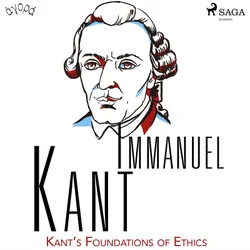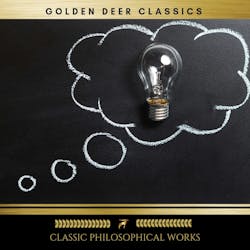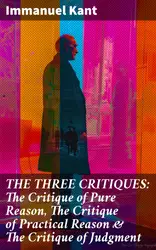In "The Ethics of Immanuel Kant," the reader is invited into the intricate moral philosophy that has profoundly influenced modern ethical discussions. Kant meticulously delineates his deontological ethics, emphasizing the significance of duty, autonomous will, and the categorical imperative. His literary style is marked by rigorous argumentation and a meticulous structure, reflecting his Enlightenment context where reason was revered as the foundation of human morality. Kant's work invites a critical examination of morality beyond mere consequentialism, asserting that moral laws must be universalizable and act as the guiding force in human actions. Immanuel Kant, a pivotal figure in Western philosophy, developed his ethical theory during a time of societal upheaval and intellectual ferment at the onset of the modern age. His educational background in mathematics and logic profoundly shaped his philosophical inquiries. Kant grappled with the implications of free will, rationality, and the nature of human existence, leading him to this seminal work that seeks to establish an ethical framework grounded in reason, rather than empirical consequences. Readers seeking to engage with fundamental questions of morality and human conduct will find "The Ethics of Immanuel Kant" essential. Its enduring relevance offers profound insights into ethical reasoning applicable not only in philosophical discourse but also in contemporary moral dilemmas. This text serves as a cornerstone for anyone wishing to explore the interplay between freedom, duty, and ethical imperatives, making it a vital addition to the library of any serious student of philosophy.

Harvard Classics: All 71 Volumes
Johann Wolfgang von Goethe, Gotthold Ephraim Lessing, Bjørnstjerne Bjørnson, Thomas Carlyle, Theodor Storm, Plato, Theodor Fontane, René Descartes, Gottfried Keller, Mark Twain, Immanuel Kant, Charles Darwin, Martin Luther, Robert Louis Stevenson, William Shakespeare, Dante Alighieri, Euripides, Percy Bysshe Shelley, Charles Lamb, Henry David Thoreau, Henry James, Samuel Johnson, John Stuart Mill, Victor Hugo, David Hume, Joseph Addison, Jane Austen, John Locke, John Fletcher, Francis Beaumont, Leigh Hunt, Epictetus, Alphonse Daudet, Thomas De Quincey, Guy de Maupassant, George Eliot, Walter Scott, Laurence Sterne, Samuel Taylor Coleridge, Jonathan Swift, Christopher Marlowe, Wilhelm Grimm, William Hazlitt, Marcus Tullius Cicero, Daniel Defoe, Aesop, Richard Henry Dana, Henry Fielding, John Dryden, Philip Massinger, Pedro Calderón de la Barca, Bret Harte, George Sand, John Ruskin, Oliver Wendell Holmes, Ernest Renan, Robert Burns, David Garrick, Ralph Waldo Emerson, John Webster, Washington Irving, Izaak Walton, John Bunyan, Juan Valera, Alfred de Musset, James Russell Lowell, Charles Augustin Sainte-Beuve, Nathaniel Hawthorne, Homer, Edmund Burke, Plutarch, Molière, Aeschylus, Michael Faraday, Sophocles, William Makepeace Thackeray, Benjamin Franklin, Edward Everett Hale, Pierre Corneille, Jean Racine, Voltaire, Robert Browning, Oliver Goldsmith, Thomas Dekker, John Milton, Aristophanes, Blaise Pascal, Virgil, Richard Brinsley Sheridan, Simon Newcomb, William Penn, Walter Bigges, Philip Sidney, Herodotus, Walter Raleigh, Francis Bacon, Giuseppe Mazzini, Francis Pretty, George Berkeley, Thomas Hobbes, Adam Smith, Alessandro Manzoni, Abraham Cowley, Michel de Montaigne, Ben Jonson, John Woolman, Benvenuto Cellini, Sydney Smith, Jean Froissart, William Henry Harrison, William Harvey, Marcus Aurelius, Hans Christian Andersen, Thomas Malory, George Gordon Byron, Thomas à Kempis, Ivan Turgenev, Richard Steele, Thomas Browne, Archibald Geikie, Thomas Babington Macaulay, Leo Tolstoy, Fyodor Dostoevsky, Tacitus, William Roper, Hippocrates, Miguel de Cervantes, Thomas More, Friedrich von Schiller, Philip Nichols, Louis Pasteur, Joseph Lister, Jean Jacques Rousseau, Pliny the Younger, Charles W. Eliot, Edgar Alan Poe, Saint Augustine, Hermann Ludwig Ferdinand von Helmholtz, Francis Drake, Edward Haies, Niccolo Machiavelli, Ambroise Paré, William A. Neilson, Honoré Balzac, Alexander L. Kielland
book
Critique of Practical Reason (Kritik der praktischen Vernunft)
Immanuel Kant
book
Kant’s Foundations of Ethics
Immanuel Kant
audiobookbook
Classic Philosophical Works (Thus Spoke Zarathustra, The Apology of Socrates, Tao Te Ching...)
Plato, Friedrich Nietzsche, Herman Hesse, Leo Tolstoy, Immanuel Kant, Sun Tzu
audiobook
Crítica de la Razón Pura
Immanuel Kant
audiobook
An Answer to the Question: What is Enlightenment?
Immanuel Kant
audiobook
Ikuiseen rauhaan
Immanuel Kant
audiobook
Collected Works of Immanuel Kant: Complete Critiques, Philosophical Works and Essays (Including Kant's Inaugural Dissertation) : Revolutionizing Philosophy: Kant's Complete Works and Essays
Immanuel Kant
book
The Critique of Judgment (Theory of the Aesthetic Judgment & Theory of the Teleological Judgment) : Exploring Aesthetics and Teleology in Kantian Philosophy
Immanuel Kant
book
The Ethics of Immanuel Kant : Exploring Kant's Deontological Ethics and the Categorical Imperative
Immanuel Kant
book
THE THREE CRITIQUES: The Critique of Pure Reason, The Critique of Practical Reason & The Critique of Judgment : Foundational Insights into Ethics and Aesthetics
Immanuel Kant
book
The Critique of Judgment: Theory of the Aesthetic Judgment and Theory of the Teleological Judgment : Exploring Beauty and Purpose: Kant's Aesthetic and Teleological Inquiry
Immanuel Kant
book
